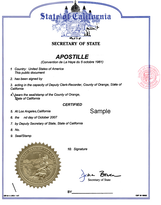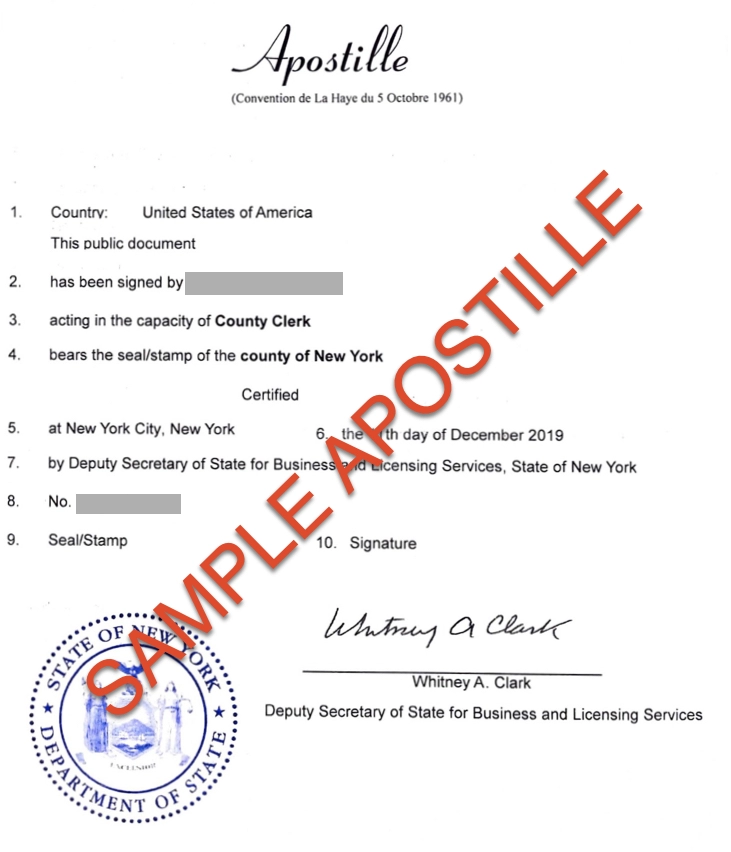Recognizing the Apostille Refine: A Comprehensive Guide to International Record Authentication
Navigating the complex landscape of global paper verification can be discouraging without a clear understanding of the apostille process. This guide carefully lays out the necessary steps, from identifying which files require qualification to submitting them for verification by the Competent Authority. Realizing the value of an apostille and recognizing potential risks, such as incomplete submissions and language barriers, can substantially improve the authentication journey. What specifically defines an apostille, and why is it so crucial for papers destined for Hague Convention nations? These questions form the foundation of our expedition right into this necessary lawful treatment.
What Is an Apostille?
An apostille is a main certification that confirms the credibility of a paper for usage in an additional country. This qualification, released by a designated authority in the country where the file stemmed, makes certain that the document is identified as valid and legit in the global arena. The procedure of acquiring an apostille includes a number of actions, including the verification of the file's signatures, seals, and stamps by suitable governmental bodies.
The apostille functions as an internationally acknowledged form of authentication, enabled by the Hague Convention of 1961. This treaty, officially recognized as the Hague Convention Eliminating the Demand of Legalisation for Foreign Public Documents, standardizes the procedure of document qualification among member countries. The apostille itself is a standard certification which contains certain details, such as the releasing authority, the native land, and the day of issuance.
It is essential to note that not all documents are eligible for an apostille. Normally, public records like copyright, marital relationship licenses, court orders, and educational diplomas receive this accreditation. Personal records, such as agreements and arrangements, might call for notarization and additional steps to qualify.
Relevance of Apostille
Understanding what an apostille is establishes the phase for appreciating its importance in international transactions. houston tx apostille. An apostille, essentially a type of accreditation issued by a marked authority, validates the authenticity of a paper for usage in international countries that are signatures to the Hague Apostille Convention. This standard process eliminates the requirement for further legalization by embassies or consular offices, thereby simplifying global deals
The relevance of an apostille can not be overstated. It guarantees the reputation and acceptance of essential files-- such as birth certifications, marital relationship licenses, and academic diplomas-- throughout borders. For services, it assists in the smooth conduct of worldwide profession, mergers, and acquisitions by offering a relied on approach of paper verification. This decreases governmental hurdles, saving both time and resources.
Additionally, an apostille boosts legal safety and compliance. Federal governments and organizations can confidently rely upon the credibility of documents birthing an apostille, reducing the danger of scams and misrepresentation. Thus, the apostille works as a vital device in promoting global teamwork and trust. Its role in fostering efficient and secure global deals highlights its vital value in today's interconnected globe.
Files That Need Apostille
When taking part in international transactions or lawful issues, details papers commonly demand the authentication provided by an my review here apostille. This ensures their recognition and approval in countries that are signatories to the Hague Apostille Convention. Generally, individual papers such as copyright, marriage certificates, and death certificates require an apostille, especially when they are utilized for processes like immigration, marital relationship abroad, or worldwide probate matters.
Educational papers are an additional category regularly calling for apostilles. Diplomas, transcripts, and academic records typically need this verification for objectives such as going after more education and learning, employment, or specialist licensing in an international country (houston tx apostille). This step ensures that the records are identified as legit and legitimate
Legal files, including powers of lawyer, testimonies, and court orders, also typically her comment is here require apostilles. Service records such as certifications of incorporation, bylaws, and commercial contracts might call for an apostille to help with global trade, develop foreign branches, or engage in cross-border lawful process.
Steps to Get an Apostille

Obtaining an apostille includes a multi-step process that makes sure the credibility and acceptance of your papers in international countries. The initial step is determining which documents need an apostille. houston tx apostille. Common papers include birth certifications, marital relationship licenses, scholastic records, and company documents
As soon as recognized, the document must be certified by the appropriate issuing authority. This could involve notarization by a notary public or confirmation by a regional or state authorities, relying on the kind of paper. After qualification, the record needs to be sent to the designated Competent Authority in the document's country of origin. In the USA, for instance, this is commonly the Assistant of State's workplace for Click This Link every state.
The submission process normally needs a completed application type, the initial record, and a fee. Some territories may provide the alternative of expedited handling for an extra charge. Upon successful verification, the Competent Authority will affix the apostille certificate to the document, consequently validating its credibility.
Typical Difficulties and Solutions
Browsing the apostille procedure can provide several typical challenges that, otherwise properly addressed, might delay or make complex record verification. One constant concern is the entry of wrong or insufficient papers. Each country has specific requirements for the sorts of files that can be apostilled, and any inconsistency from these can result in being rejected. Making certain that all files are accurate and full before submission is important.
One more typical challenge is understanding the diverse handling times. Processing times can differ significantly in between nations and even in between various areas within the same nation. It is vital to make up these variants when planning the apostille procedure to avoid unexpected hold-ups.
In addition, language obstacles can position considerable challenges. Documents in a foreign language usually call for qualified translations, and any type of errors in translation can cause additional complications. Involving a specialist translation service can minimize this risk.

Final Thought
Understanding the apostille process substantially enhances the effectiveness of global file verification. By comprehending the necessity of recognizing and licensing needed records, and navigating the submission to the Competent Authority, the process ends up being much more workable.